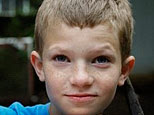Raising Kids with Autism Spectrum Disorder: Parents' Grief and Guilt
.jpg)
Some parents grieve for the loss of the youngster they imagined they had. Moms and dads have their own particular way of dealing with the situation based on a number of factors (e.g., their personality style, life experiences and support systems, among others). Clearly there are a range of stages and coping techniques, such as denial, depression, anger and rationalization. Most families recognize, at least at some level, that there is something significantly wrong with their "special needs" youngster. To at last be given a name for it (i.e., ASD level 1, or High-Functioning Autism) can be a relief. Certainly, having a clearer understanding of what is wrong affords the opportunity to obtain appropriate services, as well as to begin to think about the youngster in a different, and hopefully more helpful way. Grief— The grief surrounding the diagnosis of an Autism Spectrum Disorder (ASD) is compounded by tremendous confusion and uncertainty. Many moms and dads have little un






